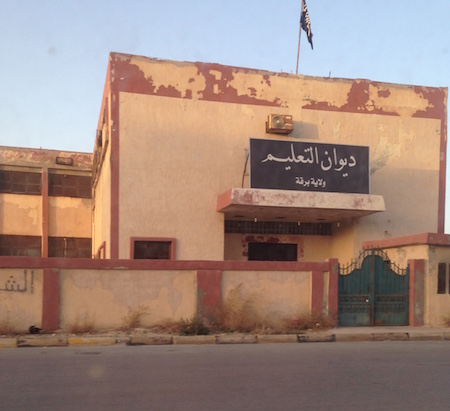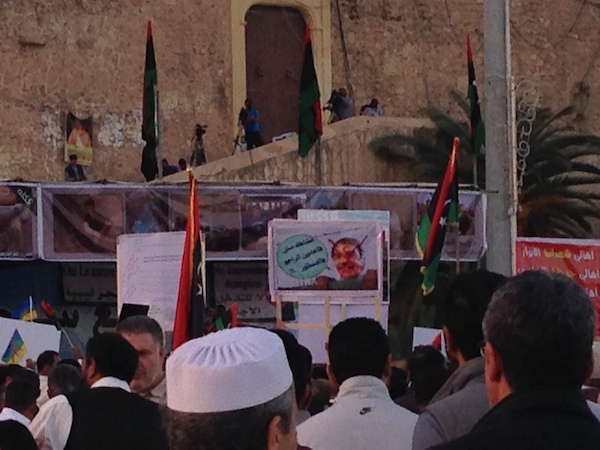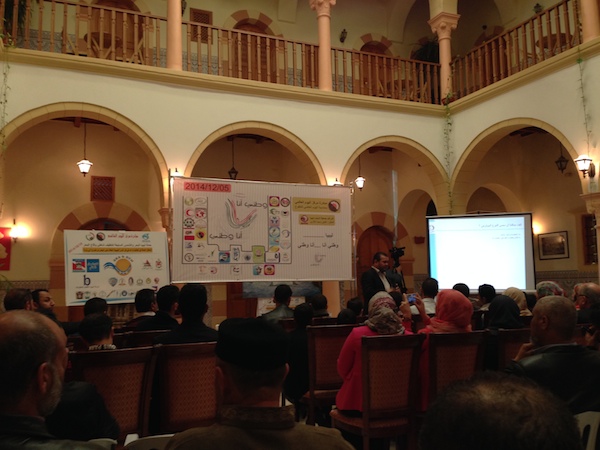By Libya Herald reporter.
Benghazi, 6 December 2014:
One of the Libya Herald’s Benghazi reporters went to Derna this week for 24 hours. He found it full of life, but did not feel he was in Libya. He writes about the experience.
The plan to go to Derna was a friend’s. He wanted to visit some family and asked if I wanted to go with him. I thought about it then said, “why not?”
Driving to Derna turned out to be quite easy, although I was nervous. At almost all the many checkpoints we were waved through. No one seemed interested in us. At the last Libyan army checkpoint just outside Derna, at Ain Mara, where Libyan flags were flying, we were stopped by men in military uniform and asked where we were going. “Derna,” my friend said. “I’m going to see my family.” The guards were not interested. Again, they waved us through.
For the next 20 kilometres or so, I was scared as to what was going to happen. It was like crossing a border.
The next checkpoint was manned by members of the Islamic Youth Shoura Council, wearing Afghan clothing but their faces hidden. All you could see were their eyes. A vehicle had “Islamic Police” painted on the side. Black Daesh flags flew overhead. But no one wanted to check us. They too waved us through.
We drove along the Corniche. It was full of people shopping and going about their business – and in many ways seemed quite normal. Again there were Daesh flags flying in the streets. We did not see a single Libyan one. Almost all the men had beards and, again, some were in Afghan clothing but it was impossible to tell if they were Libyans being politically correct or foreigners. There were plenty of women out shopping too. Some were fully-veiled, but many were dressed normally, with headscarves – although it was noticeable that almost all of these were older women.
We drove past the new Sharia High Court and the tax office of the “Islamic State of Cyrenaica”, again flying Daesh flags.
There was an air of normality about the town – much more normal than Benghazi. And the shops were better stocked than those in Benghazi. Almost all the goods were from Egypt, we were told, despite the border closures and the checkpoints. The vegetable market was particularly crowded. Many there were Egyptians as were, we were told, the vegetabes. There were other non-Libyans there – Sudanese, sub-Saharan Africans and one person who looked distinctly Somali.
There was no rush to get home after dark. The shops stayed open till after 10 pm, and there were still people out shopping at that time.
We spoke to some locals. Very few talked about Daesh, but more than one said he supported Al-Qaeda. One of them asked why we in Benghazi did not allow Ansar Al-Sharia to take control of the city. Another asked why Benghazinos had not got rid of Khalifa Hafter. However, I felt nervous about taking politics so avoided the subject.
That night, at the friend’s family home we watched TV. No-one in Derna appears to watch Karama or Awalan TV. They get all their news from anti-HoR channels such as Al-Nabaa and Misrata TV.
The next day we headed back to Benghazi.
It was a different story to our arrival.
At the checkpoint leaving the town, a gunman wearing an Afghan hat and cloths, asked for our ID. Brusquely, he told us to open the back of the car, and then open our bags. He then showed the IDs to another guard who waved us on with a dismissive gesture. So we drove off.
The guard may have been Libyan: I think he was but his demands were too brief to recognise the accent. The others did not speak.
Back at the Ain Mara checkpoint, they were interested this time, very interested. Why had we been to Derna, they asked. They were not particularly impressed when we told them we had been to see relatives. We had to get out and they checked the car and the luggage very thoroughly. They then let us go. But for the next four checkpoints it was the same. Where had we been? Why had we gone to Derna? Again there they went through the car very carefully.
After that, we were waved through the rest of the checkpoints.
It did not feel dangerous in Derna. But it was just one night and had we stayed longer I might have felt afraid. But equally, I did not feel I was in Libya. It felt like another country. It looked like the video from Syria or Afghanistan. There were no civil society institutions around. Everything was being run by the gunmen with Afghan hats. And the black flags were everywhere.
For all the difficulties in Benghazi it is still very much Libya. [/restrict] [/restrict]













